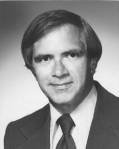|
| 2004 Tutorial: Pursuing Excellence in Human Service Delivery: A 15-yr Odyssey with a Very Happy Ending |
| Saturday, May 29, 2004 |
| 1:30 PM–2:20 PM |
| Grand Ballroom |
| Area: OBM; Domain: Applied Research |
| None CE Offered. CE Instructor: Jon S. Bailey, Ph.D. |
| Presenting Authors: : JON S. BAILEY (Florida State University) |
| Abstract: Organizational behavior management principles and procedures are often employed as one-time applications in business, industry, and organizational settings. We have had the unique experience of working with the same organization continuously for the past 15-yrs on complex issues of improving the quality of service delivery to mental health patients in a large state hospital in Northeast Florida. The projects began as demonstration projects, but, as gains were demonstrated, the administration began to take them more seriously. Over time we gained the confidence of the executive committee–seven years ago Performance Management became officially recognized as the guiding philosophy of change for the organization. Over the 15-year period we have completed hundreds of quality improvement projects with a large number of them recognized by independent non-governmental agencies for their excellence. In this tutorial, I will present an overview of the work that we have completed and try to offer some insights into our apparently successful strategies for long-term consulting using OBM. |
| |
| JON S. BAILEY (Florida State University) |
 Dr. Bailey received his PhD in 1970 from the University of Kansas and is currently Professor of Psychology at Florida State University where he serves as Co-Director of the new Masters Program in Applied Behavior Analysis at the Panama City Campus. He is a Fellow of the American Psychological Association and the American Psychological Society. He has served on the Executive Councils of the Association for Behavior Analysis and Division 25 of APA. He is currently the Executive Director and Secretary/Treasurer of the Florida Association for Behavior Analysis, which he founded in 1980. Dr. Bailey is the past-Editor of the Journal of Applied Behavior Analysis and is co-editor of the book Behavior Analysis in Developmental Disabilities, as well as co-author of Research Methods in Applied Behavior Analysis and How Dogs Learn. In addition to four books, he has published over 100 journal articles and has presented over 250 scholarly papers and training workshops in the United States as well as in Canada, England, Scotland and Wales. Dr. Bailey is President of Behavior Management Consultants, Inc. and the co-developer of the Behavioral Systems Management model which is used as the staff management and client tracking system in over 30 facilities for people with disabilities in Florida. He coined the term “behavioral diagnostics” and has been active in promoting the use of non-aversive measures in behavior programming. Dr. Bailey received his PhD in 1970 from the University of Kansas and is currently Professor of Psychology at Florida State University where he serves as Co-Director of the new Masters Program in Applied Behavior Analysis at the Panama City Campus. He is a Fellow of the American Psychological Association and the American Psychological Society. He has served on the Executive Councils of the Association for Behavior Analysis and Division 25 of APA. He is currently the Executive Director and Secretary/Treasurer of the Florida Association for Behavior Analysis, which he founded in 1980. Dr. Bailey is the past-Editor of the Journal of Applied Behavior Analysis and is co-editor of the book Behavior Analysis in Developmental Disabilities, as well as co-author of Research Methods in Applied Behavior Analysis and How Dogs Learn. In addition to four books, he has published over 100 journal articles and has presented over 250 scholarly papers and training workshops in the United States as well as in Canada, England, Scotland and Wales. Dr. Bailey is President of Behavior Management Consultants, Inc. and the co-developer of the Behavioral Systems Management model which is used as the staff management and client tracking system in over 30 facilities for people with disabilities in Florida. He coined the term “behavioral diagnostics” and has been active in promoting the use of non-aversive measures in behavior programming. |
|
| |
| |
|
| 2004 Tutorial: Attempting to Save the World with Applied Behavior Analysis: Lessons Learned from 30+ Years of Behavioral Community Research |
| Saturday, May 29, 2004 |
| 3:00 PM–3:50 PM |
| Grand Ballroom |
| Area: CSE; Domain: Applied Research |
| None CE Offered. CE Instructor: E. Scott Geller, Ph.D. |
| Chair: Mark A. Mattaini (Jane Addams College of Social Work - UIC) |
| Presenting Authors: : E. SCOTT GELLER (Virginia Polytechnic Institute and State University) |
| Abstract: Since 1970 until the present, the presenter and his colleagues at Virginia Tech have diligently and systematically addressed real-world and large-scale problems with principles and methods from applied behavior analysis. Throughout the 1970s they targeted the problem of environmental protection, while also working with teachers to make classrooms more learning centered. And in 1974, Scott Geller and colleagues focused on prison management, and developed the largest programmatic application of the three-term contingency for inmates at two maximum-security facilities. Learning Objectives The participant will be able to list 5 lessons the presenter has learned in 30 years of applying behavior analysis for large-scale problems. The participant will be able to define 5 creative applications of the three-term contingency for improving behavior in community settings. The participant will be able to describe how behavior analysis can be applied to such large-scale problems as environmental protection, transportation safety, prison management, and occupational health and safety. |
| |
| E. SCOTT GELLER (Virginia Polytechnic Institute and State University) |
 For more than three decades, E. Scott Geller has taught and conducted research as a faculty member in the Department of Psychology at Virginia Polytechnic Institute and State University, better known as Virginia Tech. In this capacity, he has authored more than 350 research articles, 17 books, 33 book chapters, 141 magazine articles, and 14 videotape programs addressing the development and evaluation of behavior-change interventions to improve quality of life. He is a Fellow of the American Psychological Association, the American Psychological Society, and the World Academy of Productivity and Quality Sciences. He is past Editor of the Journal of Applied Behavior Analysis (1989-1992), current Associate Editor of Environment and Behavior (since 1982), and current Consulting Editor for Behavior and Social Issues, the Behavior Analyst Digest, and the Journal of Organizational Behavior Management. In 2001, Virginia Tech awarded Dr. Geller the University Alumni Award for Excellence in Research. In 2002, the University honored him with the Alumni Outreach Award for his exemplary real-world applications of behavioral science. And in 2003, Scott Geller was awarded the University Alumni Award for Graduate Student Advising. In the 1980s, Dr. Geller and his students turned their attention to safety, first transportation safety and then occupational safety. They developed successful community-based programs to increase safety-belt use that were subsequently modeled by the US Department of Transportation and industrial organizations nationwide. The term “behavior-based safety” (BBS) emanated from these applications in 1980 at Ford Motor Company. Today, BBS is a worldwide happening, applied effectively with the assistance of competent behavior analysts to prevent workplace injuries and save lives. Scott Geller and his collaborators experienced numerous difficulties and outright failures in their attempts to save the world with applied behavior analysis. Critical lessons were learned from their successes and failures. This tutorial will highlight those lessons that could make future large-scale applications of behavior analysis more successful. For more than three decades, E. Scott Geller has taught and conducted research as a faculty member in the Department of Psychology at Virginia Polytechnic Institute and State University, better known as Virginia Tech. In this capacity, he has authored more than 350 research articles, 17 books, 33 book chapters, 141 magazine articles, and 14 videotape programs addressing the development and evaluation of behavior-change interventions to improve quality of life. He is a Fellow of the American Psychological Association, the American Psychological Society, and the World Academy of Productivity and Quality Sciences. He is past Editor of the Journal of Applied Behavior Analysis (1989-1992), current Associate Editor of Environment and Behavior (since 1982), and current Consulting Editor for Behavior and Social Issues, the Behavior Analyst Digest, and the Journal of Organizational Behavior Management. In 2001, Virginia Tech awarded Dr. Geller the University Alumni Award for Excellence in Research. In 2002, the University honored him with the Alumni Outreach Award for his exemplary real-world applications of behavioral science. And in 2003, Scott Geller was awarded the University Alumni Award for Graduate Student Advising. In the 1980s, Dr. Geller and his students turned their attention to safety, first transportation safety and then occupational safety. They developed successful community-based programs to increase safety-belt use that were subsequently modeled by the US Department of Transportation and industrial organizations nationwide. The term “behavior-based safety” (BBS) emanated from these applications in 1980 at Ford Motor Company. Today, BBS is a worldwide happening, applied effectively with the assistance of competent behavior analysts to prevent workplace injuries and save lives. Scott Geller and his collaborators experienced numerous difficulties and outright failures in their attempts to save the world with applied behavior analysis. Critical lessons were learned from their successes and failures. This tutorial will highlight those lessons that could make future large-scale applications of behavior analysis more successful. |
|
| |
| |
|
| 2004 Tutorial: Proposed Guidelines for a Revision and Expansion of the Scope of Applied Behavior Analysis |
| Saturday, May 29, 2004 |
| 4:30 PM–5:20 PM |
| Grand Ballroom |
| Area: DEV; Domain: Applied Research |
| None CE Offered. CE Instructor: Jacob L. Gewirtz, J.D. |
| Chair: Jacob L. Gewirtz (Florida International University) |
| Presenting Authors: : NATHAN AZRIN (Nova Southeastern University) |
| Abstract: Currently, applied behavior analysis has focused almost exclusively on problems defined by caretakers as well as being circumscribed by methodological guidelines and by exclusive concern with contingency-management variables. An expanded scope of this field is suggested that enlarges the scope of learning variables beyond contingency management and revised the methodological constraints. These changes would greatly expand the application of this field to include the large number of self-referred problems which have otherwise been preempted by other treatment modalities. The field would still retain its distinctive character as a science-based learning treatment model. |
| |
| NATHAN AZRIN (Nova Southeastern University) |
 Dr. Azrin received his PhD from Harvard in 1956 as a student of B. F. Skinner. His early work was in laboratory experiments with animals and humans to define the initial principles of operant conditioning. Subsequently his work has had the single-minded focus of developing novel and validated treatments for applied, clinical and common human problems after his early laboratory studies of positive and negative reinforcement and animal aggression. His applied innovations have included: the initial development of the “Token Economy” with T. Ayllon; the development of effective training procedures for independent self care for the “untrainable” mentally retarded; the Community-Reinforcement method of alcohol and drug addiction; the Habit-Reversal treatment for tics, trichotillomania, nail biting and Tourette Disorder; operant based treatments for Depressive Disorder and Marital Dysfunction;) the Job Club training program for the unemployed; the Reciprocity Counseling program for the communication training for family problems; the toilet training of normal children; the noctural enuresis treatment of normal and retarded persons; the Overcorrection and Positive Practice programs for eliminating negative behaviors including aggression, self-injury, and self-stimulation; and the Regulated Breathing Method for eliminating stuttering. He has served as President of the ABA, AABT, MPA, APA Div. 25, APA Div. 33, SEAB, FABA and was Chief Editor/Associate Editor/Editor of both JEAB and JABA. In addition, he has received awards from the APA, APA Div. 25, APA Div. 33, AABT, ABA, CAL/ABA and other organizations. Dr. Azrin received his PhD from Harvard in 1956 as a student of B. F. Skinner. His early work was in laboratory experiments with animals and humans to define the initial principles of operant conditioning. Subsequently his work has had the single-minded focus of developing novel and validated treatments for applied, clinical and common human problems after his early laboratory studies of positive and negative reinforcement and animal aggression. His applied innovations have included: the initial development of the “Token Economy” with T. Ayllon; the development of effective training procedures for independent self care for the “untrainable” mentally retarded; the Community-Reinforcement method of alcohol and drug addiction; the Habit-Reversal treatment for tics, trichotillomania, nail biting and Tourette Disorder; operant based treatments for Depressive Disorder and Marital Dysfunction;) the Job Club training program for the unemployed; the Reciprocity Counseling program for the communication training for family problems; the toilet training of normal children; the noctural enuresis treatment of normal and retarded persons; the Overcorrection and Positive Practice programs for eliminating negative behaviors including aggression, self-injury, and self-stimulation; and the Regulated Breathing Method for eliminating stuttering. He has served as President of the ABA, AABT, MPA, APA Div. 25, APA Div. 33, SEAB, FABA and was Chief Editor/Associate Editor/Editor of both JEAB and JABA. In addition, he has received awards from the APA, APA Div. 25, APA Div. 33, AABT, ABA, CAL/ABA and other organizations. |
|
| |